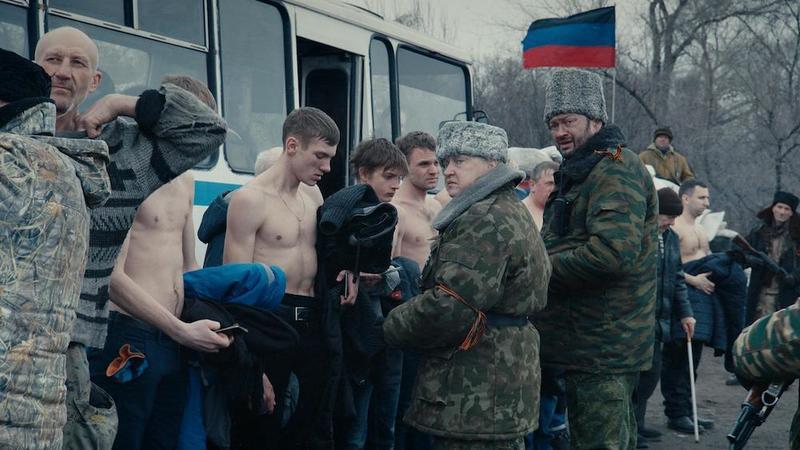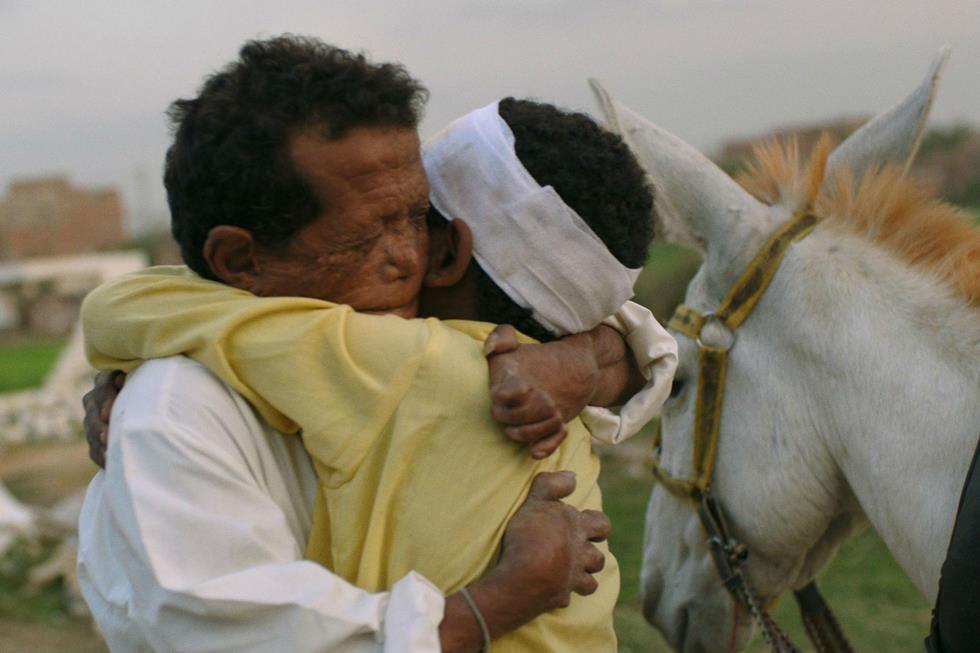The first full day of the 71st Cannes Film Festival arrived with a message of joy by way of the competition entry “Yomeddine,” a first feature by A.B. Shawky. By contrast, the more experimental Un Certain Regard section of the festival kicked off quite literally with a bang, with Sergei Loznitsa’s “Donbass.” Meanwhile, as subliminal messages go, the festival seems to suggest that participants are to feel triple-safe this year, with even more layered security measures in place. Entry to the Festival Palais and the official screenings now involves placing bags in trays for individual opening and inspection, passing through a metal detector, followed by wanding for that final touch. Like the making of a finely-crafted film, this process takes a while.
“Yomeddine,” from Egypt, is also eligible for the Camera d’Or, the prestigious prize for first or second feature. Whatever else it does or doesn’t win, there’s no doubt that this playful and poignant road movie will be the front-runner for feel-good movie of the festival. The problem with “Yomeddine” is that almost any description of the story is going to make it sound like a grim social drama, which it emphatically is not. Rather, the film has some of the same heart-tugging picaresque qualities that characterized “Beasts of the Southern Wild,” including a similar tendency to use the soundtrack music as a powerful tool of emotional manipulation.
This is the story of Beshay (non-professional first-time actor Rady Gamal), a man severely disfigured by leprosy. Now past middle age, his leprosy is no longer contagious but the scars, lumps, and twisted hands are forever. His sense of humor is a constant, his sense of self-pity zero. With tongue in cheek, he calls out “Greetings, sick people,” when he returns to the government-run leper colony in his donkey cart after daily jaunts to scavenge scrap metal and oddities at the flatland dessert dump ironically named Garbage Mountain. One day, Obama (first-time actor Ahmed Abdelhafiz), a ten-year-old Nubian orphan, attaches himself to Beshay and never leaves.
The two run away together to pursue Beshay’s dream to find the family that long ago abandoned him as a child at the gate of the leper colony in the dead of night. This is a modern folk tale, and as such, any conflicts are merely bumps in the road. It’s a remarkable odyssey, not least of all as a tour through an Egypt that is today, yet light years away from the Arab Spring. Director Shawky clearly loves the vistas of this rural land of villages and squatter camps, green fields, and the mighty Nile, seen as a medium-size muddy stream where kids take dips alongside the cattle.
Beshay and Obama ride his donkey cart until the beloved donkey dies. They hitchhike, freeload on trains, and get help from a smartass legless professional beggar, who introduces them to the little colony of other outcasts who live in harmony under a bridge. The aftermath of an accident suffered by Obama and the escape of Beshay from the custody of small-town cops afford some comic capers, but also bond the two more deeply in a father-son relationship. At its serious core, “Yomeddine,” which translates as Judgment Day in Arabic, is about fathers and sons, and equally about acceptance and forgiveness. Beshay and Obama each face a terrifying moment of truth, in which their identity and future is at stake, and they come out the other side whole.

On the flip side of today, if there is a feel-bad movie in this year’s festival, “Donbass” will get many votes. Ukrainian director Sergei Loznitsa (“My Joy,” “In the Fog”) was previously in Cannes just last year, with the dark, surreal and thoroughly pessimistic competition entry “A Gentle Creature.” His new film “Donbass,” set in present-day Eastern Ukraine, which is depicted as under chaotic military and paramilitary control, is no less pessimistic, but surrealism is dialed back, replaced by the heaviest irony. The film’s opening sequence involves a ragtag group of movie extras being trotted from the makeup trailer to the location, where they play witness to the bombing of a charred city bus that has just been blown up by the crew, a scene indistinguishable from the real-life violent sights erupting on the surrounding streets, where bombs may go off at any moment.
Over the course of thirteen seamless episodes, set under grey skies and with a muted color palette, Loznitsa portrays a society ravaged by corruption, extortion, lawlessness and division, ruled by camouflage-garbed military and paramilitary thugs at war with each other, and yet with shades of political affiliation that will remain largely undefined to the average viewer. Characters appear and reappear from one small drama to the next, including a portly liar of a politician massively on the take, a bouffant-haired female official, and a brutal military commander who robs civilians with impunity, forcing one man to sign over his SUV by implying the worst if soldiers are sent to pick up his daughter from kindergarten.
Complicity extends to all. Civilians are often but not always seen as cowed victims. An intimidating jokester of a soldier boards a bus halted at an impromptu rural checkpoint and demands a contribution for his soup pot. Among the silent passengers with frightened, downcast eyes, only a babushka-clad granny antes up, saying, “Take this, son,” and allows him to cut a chunk off the slab of bacon she pulls from her shopping bag. And yet it is just such a granny who joins a crowd of jeering punks to vigorously attack a beaten, half-dead soldier from the opposing side, tied to a lamppost for public humiliation. Loznitsa builds this scene to a point of calculated horror, as bystanders of all ages and walks of life join in the fun, and humanity is lost to the lowest instincts of the herd.
The film’s lavish set piece is a civil wedding that takes place in the town hall, presided over by an officious lady bureaucrat. Reminiscent of the grotesquery that characterized Loznitsa’s extended fantasy sequence in “A Gentle Woman,” a huge, puffy-faced middle-aged bride in cascades of frilly white is being joined in second marriage to a skinny nerd of a groom in a bizarre ceremony that evolves into a tumultuous and mob-like mockery of family and the state of matrimony.
The finale of “Donbass” circles back to the movie makeup trailer of the opening sequence, where on another day, a tragic incident is playing out. Loznitsa’s movie within the movie finally gives away to yet another layer of filmmaking, a small but very ironic media circus involving endless staging and retakes of witness statements for the news.












